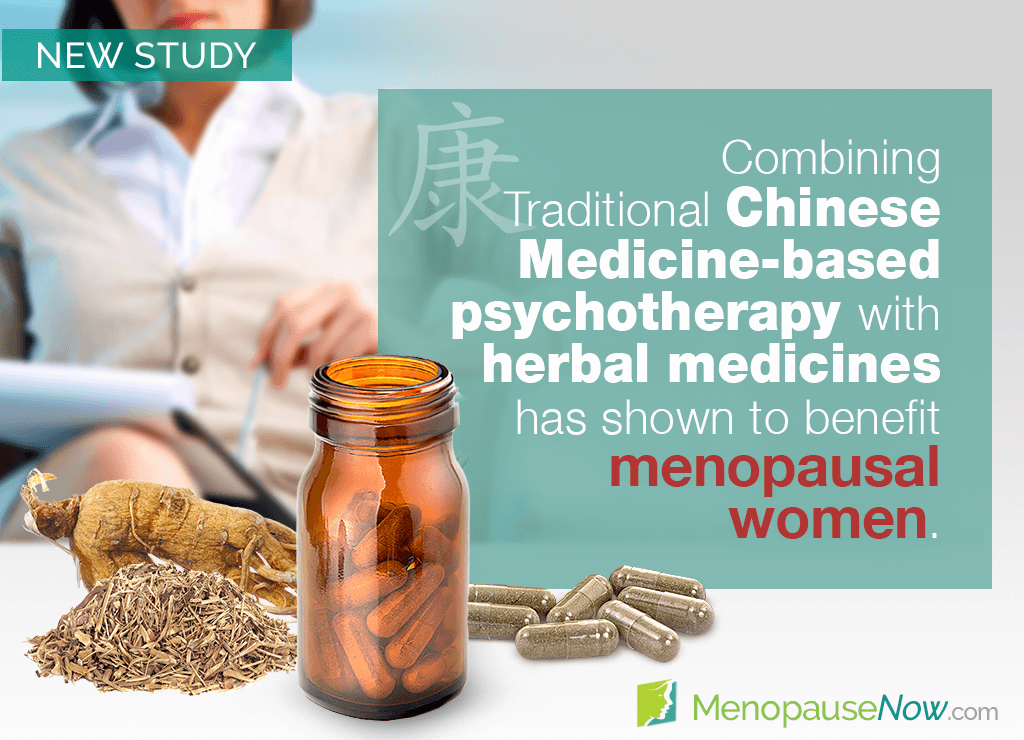Traditional Chinese medicine (TCM) is highly regarded not only by local communities, but also around the world. Modern trials on its safety and efficacy - including those on menopausal women - help promote their widespread use and may give women tested options to treat their symptoms.1
This multicenter, clinical trial was an effort of Chinese researchers to evaluate the effectiveness of TCM-based psychotherapy and Chinese herbal medicine on menopause symptoms.
Study Design
Researchers recruited 424 menopause women, categorized as Kidney-Yin or Kidney-Yang deficiency patterns according to TCM.
For the next 12 weeks, they were divided into four treatment groups as follows:
TCM-based psychotherapy group underwent psychotherapy sessions and received the placebo capsules.
Chinese herbal medicine group were given either Gengnianningxin capsules or Bushen oral liquid (depending on the Kidney-Ying/Yang category).
TCM-based psychotherapy with Chinese herbal medicine group underwent psychotherapy sessions and took either Gengnianningxin capsules or Bushen oral liquid (depending on the Kidney-Ying/Yang category).
The placebo group received the placebo capsules
To track treatment outcomes, researchers used the Kupperman Index (KI) and the Menopause-Specific Quality of Life (MENQOL). Women were followed up for 12 more weeks after the completion of the trial.
The findings of this trial were published in the Evidence-Based Complementary and Alternative Medicine journal.
Study Findings
Out of all recruited women, 400 successfully completed the trial.
In comparison to the placebo group, there were statically significant improvements in the Chinese herbal medicine with psychotherapy group.
No major differences were seen in the Chinese herbal medicine group nor the TCM-based psychotherapy group as compared to the placebo. There were no severe side effects reported during the trial.
What Does It Mean?
The results of this interesting trial show that combining TCM-based psychotherapy with Chinese herbal medicine can help treat menopause symptoms.
Interestingly, both treatments on their own did not prove sufficiently effective for symptom relief.
Before starting any new herbal regimen, it is essential to consult one's healthcare practitioner to ensure it is the right fit and does not interfere with other prescribed treatments.
Sources
- Evidence-Based Complementary and Alternative Medicine. (2012). Effect of Combining Therapy with Traditional Chinese Medicine-Based Psychotherapy and herbal Medicines in Women with Menopausal Syndrome: A Randomized Controlled Clinical Trial. Retrieved January 26, 2021 from https://www.hindawi.com/journals/ecam/2012/354145/
Footnotes:
- Chinese Journal of Integrative Medicine. (2010). Assessment of the clinical effect of Chinese medicine therapy combined with psychological intervention for treatment of patients of peri-menopausal syndrome complicated with hyperlipidemia. Retrieved January 26, 2021 from https://link.springer.com/article/10.1007%2Fs11655-010-0124-x

